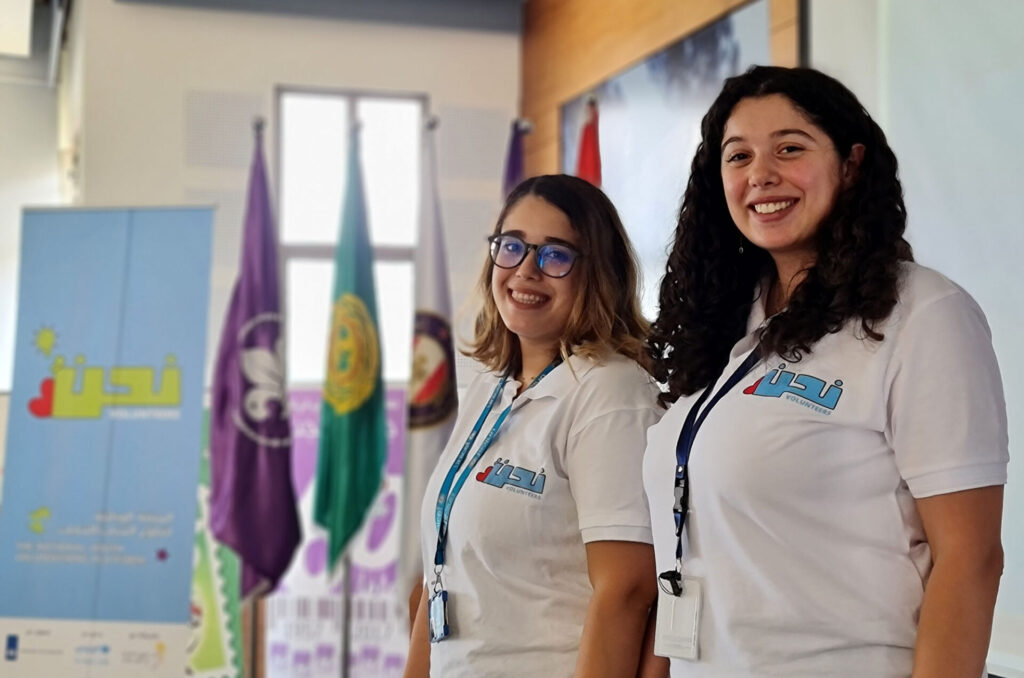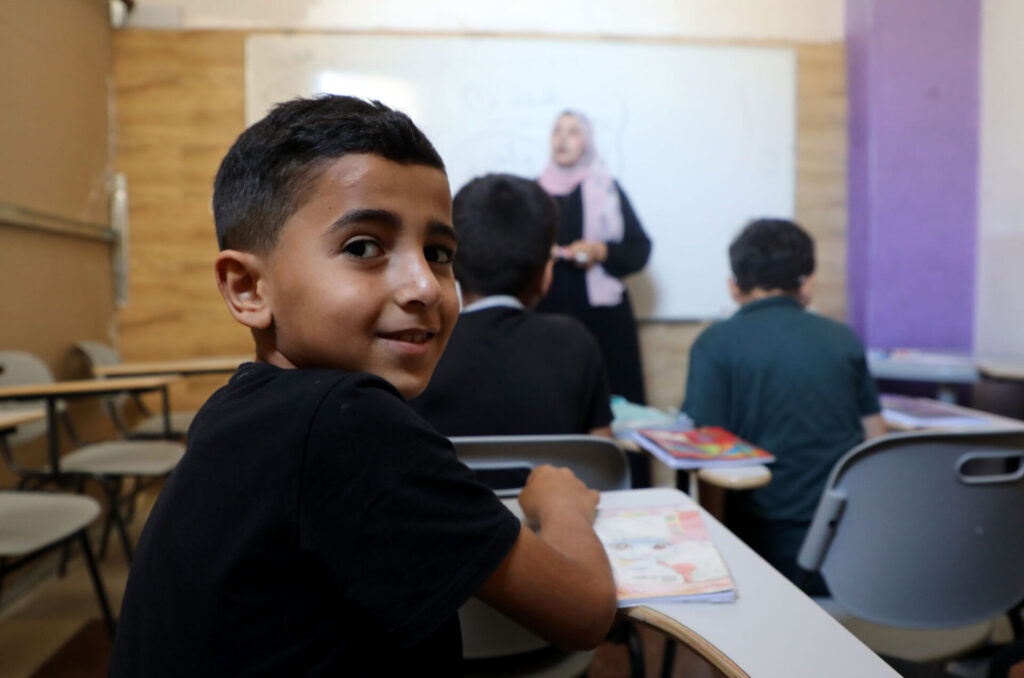Apr, 2023
The South Governorate of Lebanon is a beautiful place with white beaches, archeological ruins, bustling old souks, fertile fields of citrus and banana trees, and a deep history. Its residents are from different religions: Shia and Sunni Muslims, Druze, Eastern Orthodox, Maronite, Protestant, and Greek Catholic Christians. Its biggest cities are also the third and fourth largest in the country, Saida and Tyre.
South Governorate | الجنوب
The South Governorate shares a border with Israel and it hosts five Palestinian refugee camps: Ein El Hilweh, Rashidieh, El Bass, Burj El Shemali and Mieh Mieh – the most of any Lebanon governorate. The camps came into being in the wake of Palestinians’ displacement from their country in 1948. The refugees’ tents turned into crowded concrete mazes lined with crumbling structures. Three generations of Palestinians have been born and raised in the camps.
The 2006 War
On July 12, 2006 the Israeli Defense Forces engaged in military operations against Hezbollah in response to two soldiers being captured by the resistance group. Israel responded with a major military campaign in southern Lebanon. The conflict lasted for 34 days, causing many deaths, massive population displacement, and economic losses throughout Lebanon. The physical destruction caused widespread unemployment and severely threatened the livelihoods of communities in the South Governorate, which was already one of the poorest areas of the country.
Two groups acutely affected by this crisis were farmers and small businesses in the south. The conflict came at the height of Lebanon’s summer season, causing serious losses to hotels and restaurants and complementary businesses that are heavily dependent on the influx of tourists to Lebanon.
Anera’s work in Lebanon ramped up significantly in response to the 2006 war. Just after our first office opened in Lebanon (in Beirut), Anera responded with immediate, emergency relief and then shifted to focus on rebuilding the economic livelihoods of families and communities affected by the crisis.
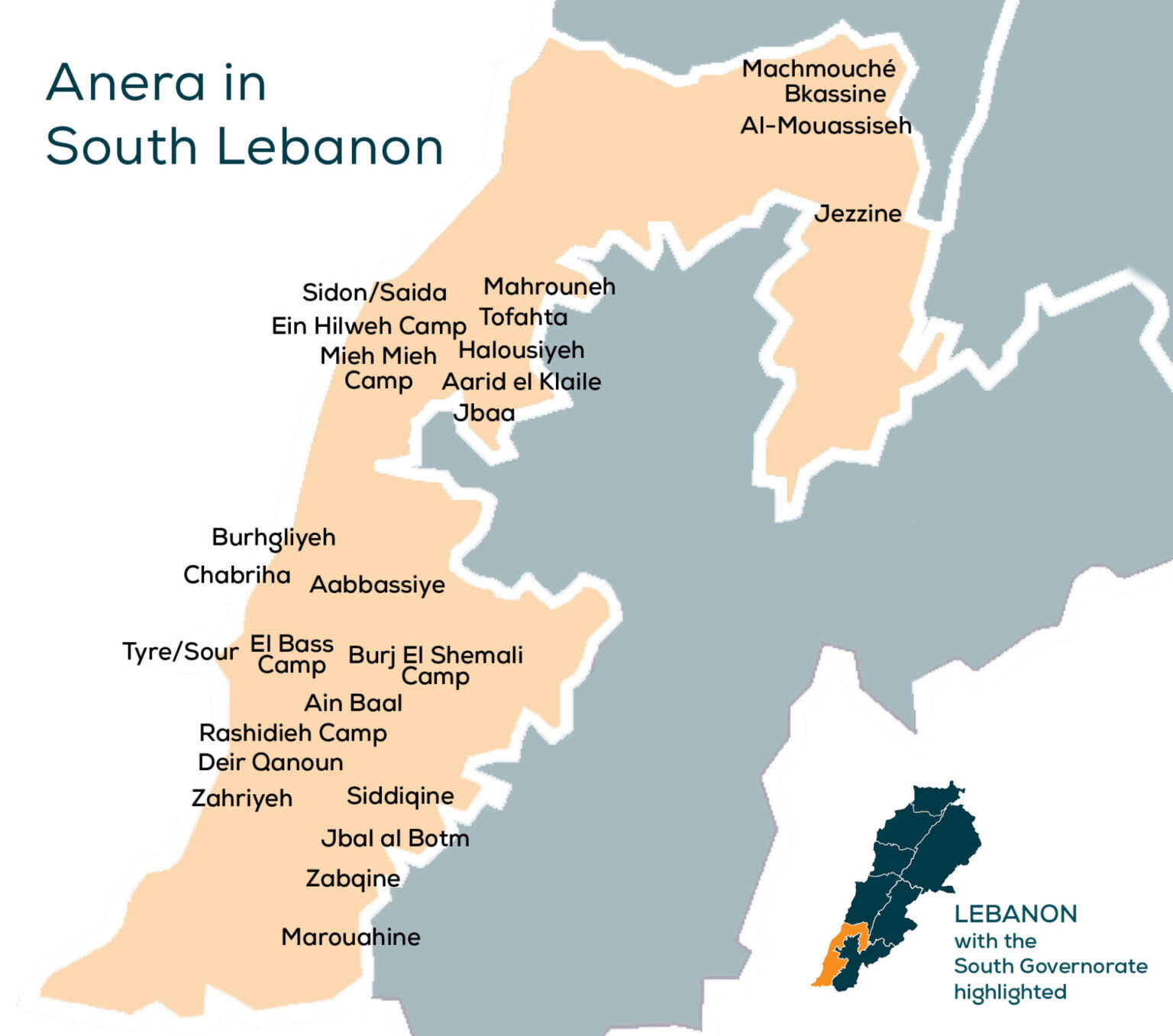

Education
2006 War Recovery
In the wake of the 2006 war, Anera carried out a recovery project in southern Lebanon that focused on restoring the capacities of community-based organizations through education and vocational training, marketing and information technology initiatives. We partnered with several local non-profits to reach the most vulnerable communities with vocational training courses and infrastructure upgrades.
Anera equipped and furnished the Jbaa Youth Center, the Klaile IT Center and the Ksaibe Community Center. We rehabilitated the Tyre IT Center and the. We also helped to establish the Mimes IT Center.
The program’s 32 vocational training courses empowered and educated 424 entrepreneurs in business management, food processing, marketing, hygiene, soil fertility, aromatic plants, construction and more.
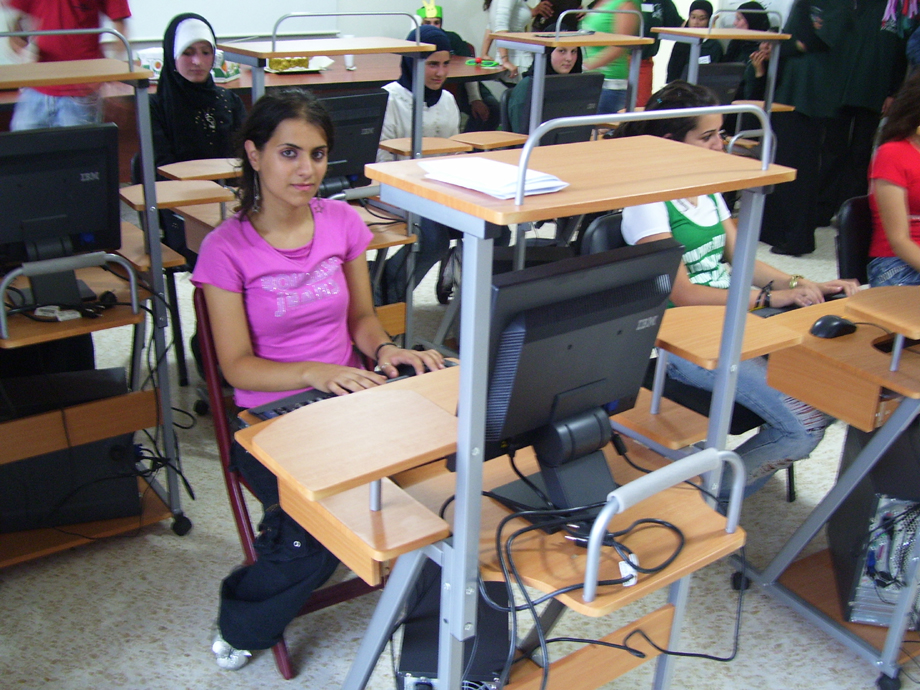

Developing Young People’s Skills
Anera has worked since the early 2010s with underprivileged youth to help them acquire essential life skills and professional competencies. We have reached tens of thousands of youths across the country, including in the South Governorate. Our main activities include non-formal courses in various vocational skills, health, life skills, literacy and math. And Anera’s classes provide a positive and encouraging environment.
Basic Math, Literacy and Life Courses
Syrian and Palestinian refugees in Lebanon face a number of barriers to get an education. Schools are terribly overcrowded. The teaching language is different – Arabic in Syria and English or French in Lebanon. And young people often want to support their families by finding work. Since 2016, Anera’s basic math and literacy classes have reached 6,987 students in the South Governorate who fell behind or left school, to teach them the transferable skills they need to re-enter the formal education system, get jobs, or develop on a personal level.
Anera has worked with more than 16 trusted local nonprofits in the South Governorate, like Muwasat and CIS, to deliver innovative non-formal remedial education in Arabic literacy, math, English as a foreign language, IT and vocational and life skills training. Curricula focused on skills that were likely to produce immediate benefits to students’ lives and be compatible with their jobs and/or living conditions. The timing of classes suited the needs of the youth registered at the different centers.
As part of our basic education interventions, Anera also rehabilitated and prepared learning centers in the South Governorate, including equipping classrooms with furniture as well as audiovisual and IT equipment.
Back-to-school Campaigns
Anera’s back-to-school projects in 2017 and 2018 recruited and trained 529 youth workers to serve as outreach volunteers and participate in community mobilization during Lebanon’s national back-to-school campaigns both years. Our volunteers fanned out across the South, Bekaa, Akkar, North, Baalbek, Beirut and Mt. Lebanon governorates. They succeeded in referring more than 19,000 out-of-school youth back into education programs, including non-formal learning opportunities. The majority (75%) of household visits took place in Palestinian camps and gatherings.
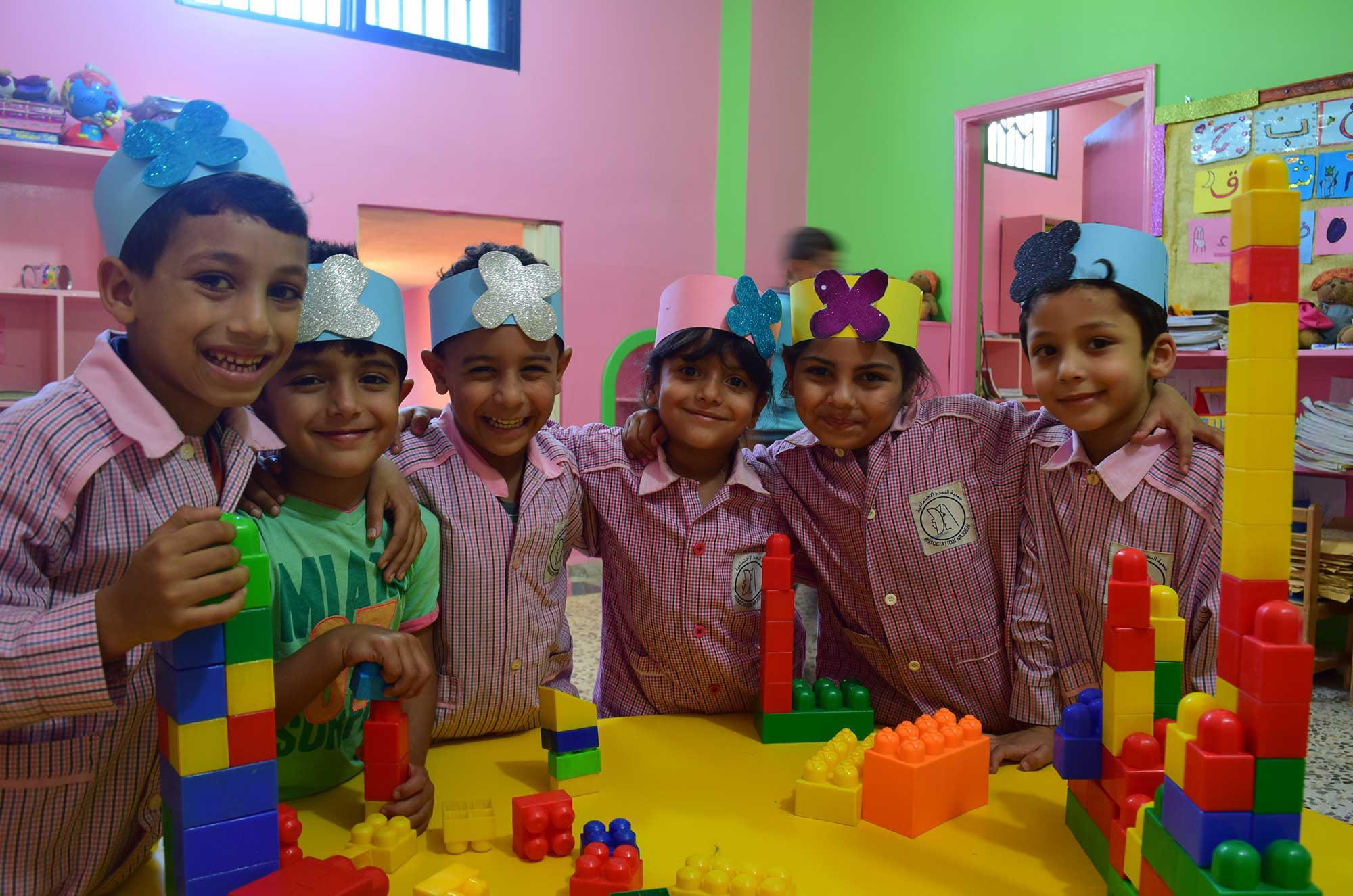

Infrastructure Upgrades at Preschools
Early childhood development is one of Anera's flagship programs in Palestine. We took our knowledge to Lebanon and renovated two preschools in the South Governorate, one in Burj El Shemali and the other in Ein El Hilweh. In the mid-2010s, Anera sealed the windows and roofs against bad weather, upgraded the electrical systems, painted the classrooms, and rehabilitated the bathrooms to be more child-sized and sanitary. We also updated playgrounds and installed new equipment to make the preschools a safer environment for children.
In 2010, we installed a playground at the Najdeh Association’s preschool in Ein El Hilweh, helping to fill a great need for playgrounds in the gatherings, camps and schools around Lebanon.
Supplies for Students
In the South Governorate in 2020, Anera and the Women Programs Center partnered to distribute thousands of school kits in Ein El Hilweh camp. We also provided hygiene kits and quilts to vulnerable families. Spiraling inflation rates in Lebanon meant many families were anxious about being able to afford the dramatically increased prices on even the most basic goods. The students who received school kits through this distribution did not have to worry about being able to buy school materials that year.
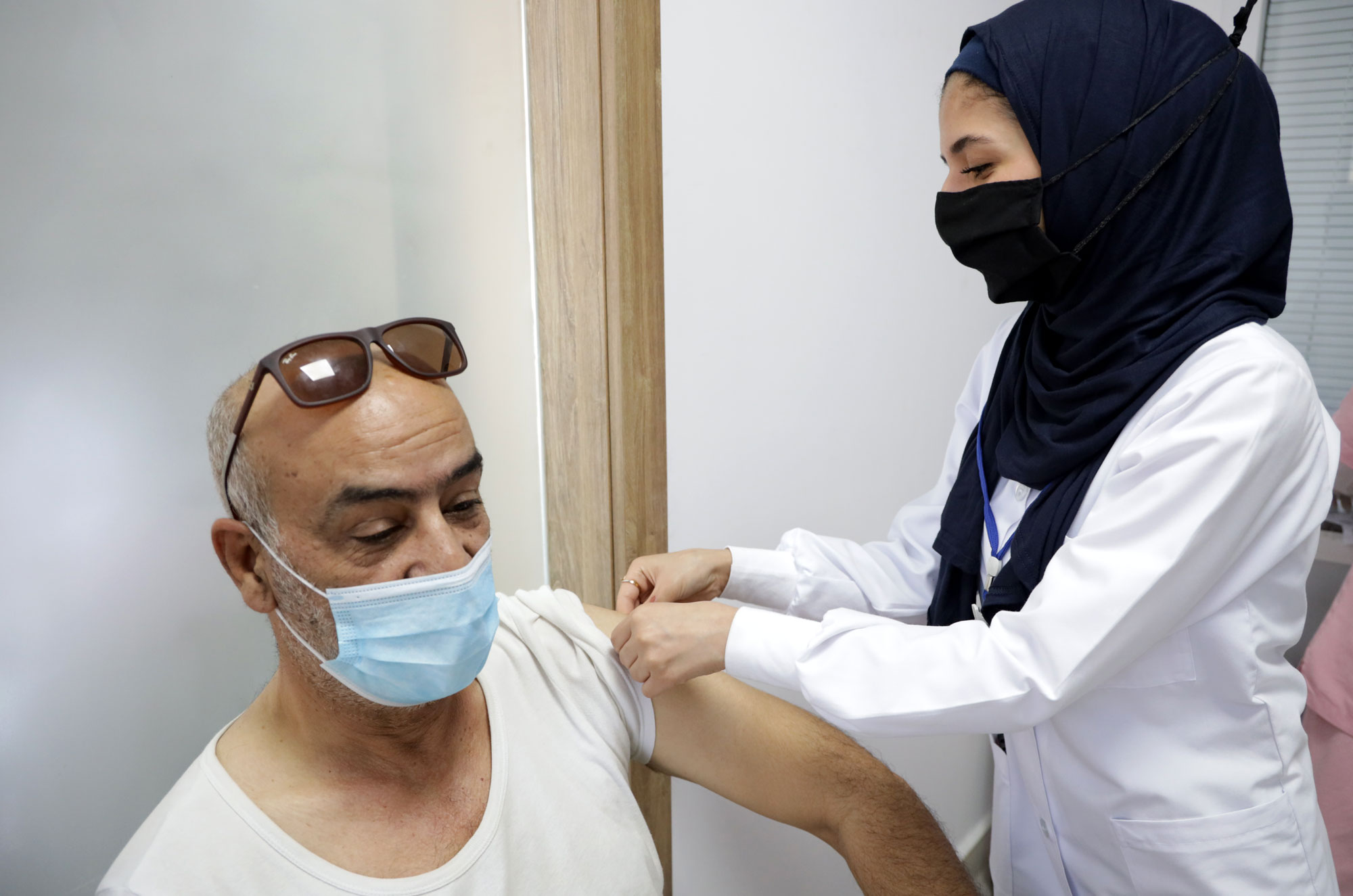

Technical and Vocational Educational Training Program
The economic collapse is contributing to an increase in Lebanese youth seeking employment in fields like plumbing, electrical maintenance and construction (an industry that was previously a mostly Syrian-dominated field). Anera’s nationwide vocational education program is positioned to help youth weather the economic crisis that their country is experiencing. Our courses provide youth with skills-based knowledge, hands-on training and paid internships or other work experience.
In 2010, Anera partnered with the Arab Resource Center for Popular Arts to help women in Ein El Hilweh learn how to use recycled paper for income-generating projects. And, in the same year, we funded the purchase of computers for the Al-Houla Association's IT center in Burj El Shemali.
In the early 2020s, Lebanon started discovering what life is like without reliable electricity — a consequence of runaway inflation and the collapse of the Lebanese lira. Across the country Anera trained young people to install and repair solar systems and learn about electrical maintenance. In Saida, we partnered with the Science and Culture Association to teach students with learning difficulties and people forced to drop out of school at a young age. Like most of Anera’s vocational courses, only a fraction of our electrical maintenance and solar installation training is theoretical. The rest of the course is hands-on practical training in addition to a cash-for-work component, which is 40 days of paid practical training. This gives students the necessary experience to enter the labor market and even establish their own businesses.
Another Anera partner in southern Lebanon is the Imam Sadr Foundation, a youth development and education organization. Anera and the Sadr Foundation, in the early 2020s, together provided trainings on agriculture, phone maintenance, home healthcare that helped Palestinian and Lebanese youth to learn skills that led to good jobs.
In the same period, Anera supported 22 nursing students with a full scholarship (until graduation) at the Al Afaq Institute of the Imam Al Sadr Foundation. The financial crisis caused a mass exodus of qualified nurses from the country. Upon graduation, these burgeoning nurses from Burj El Shemali, Tyre, Saida, Siddiqine, Chabriha and Rashidieh begin immediately to work at one of Lebanon's understaffed medical facilities.
Apprenticeships
In the late 2010s, 289 youths (among 1,548 nationwide) in the South Governorate who participated in our vocational education programs entered the job market through internships and apprenticeships that Anera arranged. Our vocational education programs complement classroom instruction on theory and basic skills with hands-on experience at an actual workplace. This is what creates a highly skilled workforce tailored to the specific needs of the Lebanese market.


"I started with a modest salary, but it’s enough for me to cover my own needs independently. As soon as I complete my third month, I will get a raise.”
- Halima, 19, is a Palestinian refugee from Ein El Hilweh camp in southern Lebanon. She dropped out of school in the 9th grade, and later joined non-formal literacy, math and skills training courses at the Women’s Program Association – Anera’s local partner. Her hard work impressed the director of the association, who hired her as a secretary.


Agriculture & Water
In the wake of the 2006 war, Anera focused on rebuilding infrastructure like bridges, culverts, retaining walls, wells, and cooperatives. The aim was to have an immediate impact on the lives of farmers and those who own and work in non-farm businesses in the rural and peri-urban districts in the South Governorate.
Anera reconstructed a bridge in Klaile; retaining walls in Aabbassiye, Mahrouneh, and Zahriyeh; and a culvert in Burj El Shemali camp. We rehabilitated retaining walls in Deir Qanoun, Jbaa, Jbal al Botm, Qantara, Zabqine and Aabbassiye; culverts in Ain Baal, Jbal al Botm and Aabbassiye; irrigation pools in Marouahine and Zabqine; and infrastructure at the Halousiyeh Cooperative and the Siddiqine Dairy Cooperative.
In 2021, young people from Anera’s plumbing and construction vocational education program improved their community’s water situation by installing a new public water fountain in Ein El Hilweh. As part of their experiential learning, they chose this project because they saw a real need for it in the camp. The students put their skills to work and were paid!
In the early 2010s, Anera partnered with the American University of Beirut and the Women’s Program Center (WPC) to introduce urban agriculture to Ein El Hilweh camp. The project transformed the yard at the women’s program center into a nursery and showcase garden. Through a dozen hands-on workshops, 28 members of WPC gained skills in cultivating herbs, vegetables, ornamental plants, as well as in flower germination, plant diseases propagation and necessary remedies. They took those skills and started their own garden, bringing greenery to concrete neighborhoods and providing a sense of self-reliance and a positive change in stressful and challenging conditions.
A decade later, in the early 2020s, Anera began building rooftop gardens complete with small greenhouses, planting containers, seedlings, and growing material. Though Anera's rooftop gardens use containers that need very little soil or water, they are prolific. Trainers work with families to share best practices and to resolve any issues that arise.
From a rooftop garden Anera installed in Tyre.
Health
Medical Aid
Anera distributes millions of dollars worth of medicines for chronic conditions, hospital equipment, wheelchairs, over-the-counter drugs, and healthcare supplies that would not otherwise be available in the communities where they are needed the most. Our deliveries support hundreds of hospitals, clinics, schools, and community centers in Lebanon struggling to meet the needs of vulnerable families.
Anera has many local partner organizations in the South Governorate. One is the Human Call Hospital — the only 24/7 emergency clinic in Ein El Hilweh. We provide a substantial percentage of its medical supplies. Since the hospital treats 50-60 patients per day, the support of Anera’s donor community positively affects thousands of patients.
Al Hamshary Hospital, located on the outskirts of Mieh Mieh camp near Saida, is another medical aid recipient organization. Al Hamshary is unique. While its 80 beds provide valuable care for those in need, its dialysis department was the only one in Lebanon providing treatment for Palestinians up until 2017, when Anera installed a kidney dialysis unit at Safad Hospital in Beddawi refugee camp. For many years, Anera has supported Hamshary with shipments of medicines that patients need regularly and reliably. We also provide supplies like tubing and filters for the site’s dialysis machines.
Anera released this film in 2012, featuring Bilal, a young dialysis patient at Hamshary Hospital in the South Governorate of Lebanon.
In the early 2020s, Anera supplied the Tofahta Medical Center in Saida, among 50+ other healthcare facilities, with medicines for chronic diseases. While Lebanese pharmacies were well-stocked with these medications, the prices were exorbitant and put them out of reach for most people. Anera’s consistent deliveries meant that patients suffering from conditions like heart disease and diabetes could count on getting their medicines – free of charge!
Health Facility Infrastructure
In the early 2020s, Anera installed solar power systems at medical clinics across Lebanon, supporting quality health services for refugees and other vulnerable populations. Electricity has been a chronic problem in the country and it is only getting worse. Healthcare centers are particularly reliant on steady energy flows to keep medical equipment running. The Tofahta Medical Center in Saida was one of the centers where Anera installed solar panels. Now the staff know equipment will operate and they will save a lot of money on fuel to run generators.
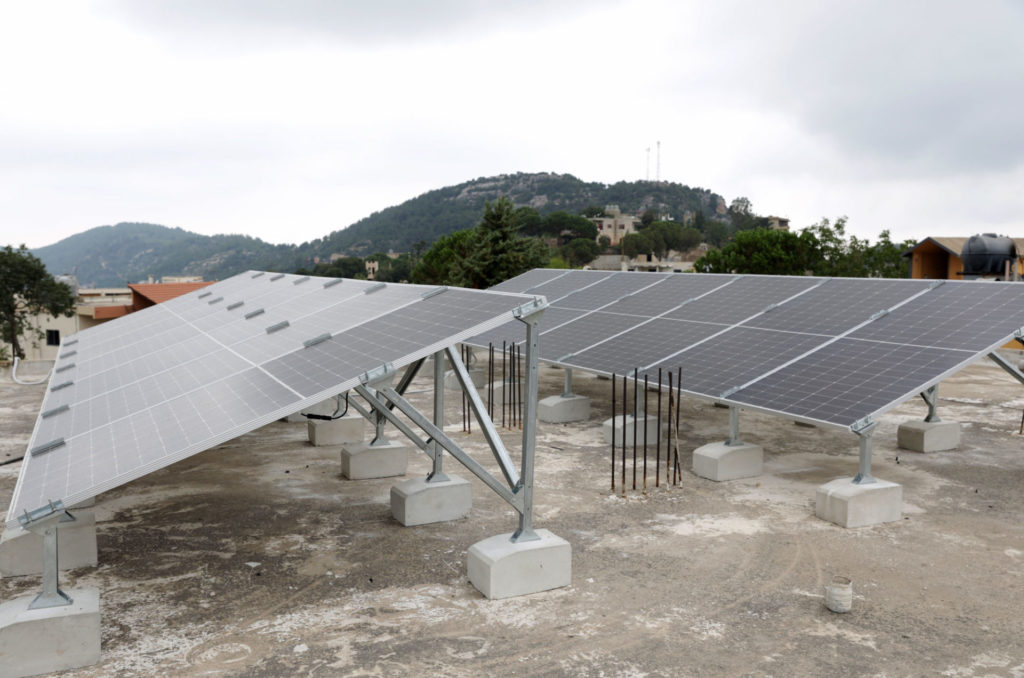

Health Education
Anera’s Creative Health Campaign (2006-2011) promoted simple, cost-effective, good health practices that people living in marginalized and poor communities could do to improve their health and foster self-reliance. In partnership with 120 local organizations, Anera planned colorful parades and theatrical events, distributed materials, hung posters, trained volunteers and conducted awareness sessions primarily in refugee camps, including those located in the South Governorate. The campaign brought individuals and institutions together to tackle pressing health issues and share knowledge.
In 2007, partnering with six local nonprofits, Anera responded to the needs of mothers and children by distributing emergency kits which contained milk, diapers, personal hygiene items, and other necessities. We reached more than 27,000 people in Beirut, Mount Lebanon, and the South Governorate. We also provided health education for mothers with children under three years of age. Key messages included the importance of breastfeeding, preparation and use of homemade oral rehydration salts, and management of fever and diarrhea.
In 2013, Anera included maternal and child health and nutrition in relief efforts for Palestinian refugees from Syria. We reached out to 1,000+ families in Rashidieh, Burj El Shamali, and El Bas camps as well as neighboring villages and gatherings in Tyre. Activities included interactive 51 training events, educational tools, and community health days.
Also, in 2013, Anera started a two-year partnership with Amel Association International to empower 1,500 Syrian, Lebanese and Palestinian youth in Beirut, the South Governorate, and Bekaa by offering vocational training programs and language/computer courses, in addition to life skills and health awareness sessions, which addressed health issues like nutrition, drugs, reproductive health, gender-based violence, personal hygiene, and water safety conservation.
In 2019, Anera conducted a series of puberty-related educational sessions at a school for Palestinian refugee children in El Bass camp and visited households to solicit feedback from parents. Tackling long-standing taboos is an important component of Anera’s community development work. For girls and women, menstruation can be an impediment to getting and education or doing a job. This educational series delved into the topic and helped dispel some myths and misconceptions.
Meet Hatem, a 12-year-old Palestinian living in Burj Shemali camp in south Lebanon, while he gives you a tour of his school and shows you how Anera is working to promote environmentalism and hygiene in Lebanon by conducting a series of awareness sessions at UNRWA schools.
Community
Infrastructure
As part of Anera’s effort to help communities in the South Governorate rebuild their lives after the 2006 war, Anera worked on improving living conditions for Palestinian refugees and low-income Lebanese families in three underserved communities around Tyre: Al-Mouassiseh (bordering Burj El Shemali camp), Chabriha and Burghiliyeh. The communities are informal refugee camps, known as “gatherings.” They lacked basic infrastructure for health and security. Unlit alleyways, open sewage drains and rotting piles of garbage were a fact of life.
In the late 2000s, Anera alleviated some of the misery by rebuilding essential infrastructure, eliminating environmental hazards that put families’ health at risk, and encouraging reconciliation between Lebanese and Palestinian communities. We rehabilitated the electricity network in Al-Mouassiseh to help reduce household expenses, eliminate injuries from electric shocks and fire, and light up dark streets and alleys at night. We built a water well to replace one that had collapsed in northern Burghliyeh. The new well served 100 local families. In southern Burhgliyeh, Anera installed a new park and playground so that Palestinian and Lebanese residents would have a safe place to play and gather together. Before, children played in streets and alleys.
In Chabriha, in partnership with PARD (Popular Aid for Relief and Development), Anera brought together area youths to clear the streets and alleys of garbage, sweep, distribute trash bags to families and hang posters to promote keeping the community’s environment clean. They even hosed down areas between homes heavily trafficked by community members. By noon the clean-up work was complete and the kids went door-to-door to distribute a package of garbage bags for each home and promote cleanliness.
In the late 2010s, in Ein El Hilweh, there was a small community that lived upon a hill, known locally as Jabal Al Halib (Milk Mountain). For people living there, the only path they had to take into the main camp was rugged and unforgiving. It was especially dangerous during the winter or on rainy days. Several people would get seriously injured each year, and some were even killed. A group of Anera construction and plastering course graduates from the camp decided to take it upon themselves to construct a staircase on the hill, designing a 86-meter staircase, made of concrete, wood and steel. The graduates took advantage of the summer’s sunny days to complete the project, under the supervision and support of Anera’s building experts. On the staircase’s opening day, the residents of the area all gathered and joined the graduates and Anera in celebrating the achievement.
The Jabal Al Halib Staircase in Ein El Hilweh
Solid Waste Management
In the late 2010s, Anera worked in all of the Palestinian camps in the South Governorate to launch trash sorting campaigns, conduct awareness sessions, and do field visits to ensure the efficiency and comprehension of recycling in homes. The project also improved the livelihood and safety of scavengers at the camps as well as supporting local initiatives for camp improvement.
In 2017-18, Anera trained families in Rashidieh camp on solid waste sorting. Each of the households received two bins – one for recyclables and one for other waste – alongside an awareness session on the importance of sorting from the source and proper sorting behavior. Scores of volunteers from the local community provided the trainings and follow-up visits. Monitoring results revealed that 80% of households in Rashidieh adopted the sorting practices.
Anera worked in Burj El Shemali camp in 2018-19 to complement UNRWA’s solid waste management efforts, which included establishing a sorting facility in the town. Anera mobilized community members to change attitudes and behaviors around littering, pollution, recycling, sorting waste at source and composting, and to practice proper waste management at their homes. We also conducted awareness sessions on the risks of improper sanitation and hygiene practices, focusing on menstrual hygiene. As part of a year-long campaign in 2019, Anera held sessions for children at UNRWA schools. We engaged with them in an interactive and fun way to encourage protection of their environment.
Sports
In the mid- to late 2010s, Anera empowered coaches to become role models and actors of social change by conducting scores of training sessions that focused on conflict resolution, healthy habits, treating injuries and technical capacity. We worked with 12 local partners in the South Governorate to train 78 coaches and they, in turn, reached hundreds of young people in southern Lebanon with sports and character-building activities.
Anera partnered with the Women’s Program Association and Tadamon Association in Ein El Hilweh to organize swimming classes for Palestinian refugee girls and women ages 14-24. Fifteen participants went to eight sessions in Anera’s initial month-long pilot class. It was so successful that 50 girls signed up for the next round of courses and the club set aside Tuesdays as the special day designated for girls and women only.
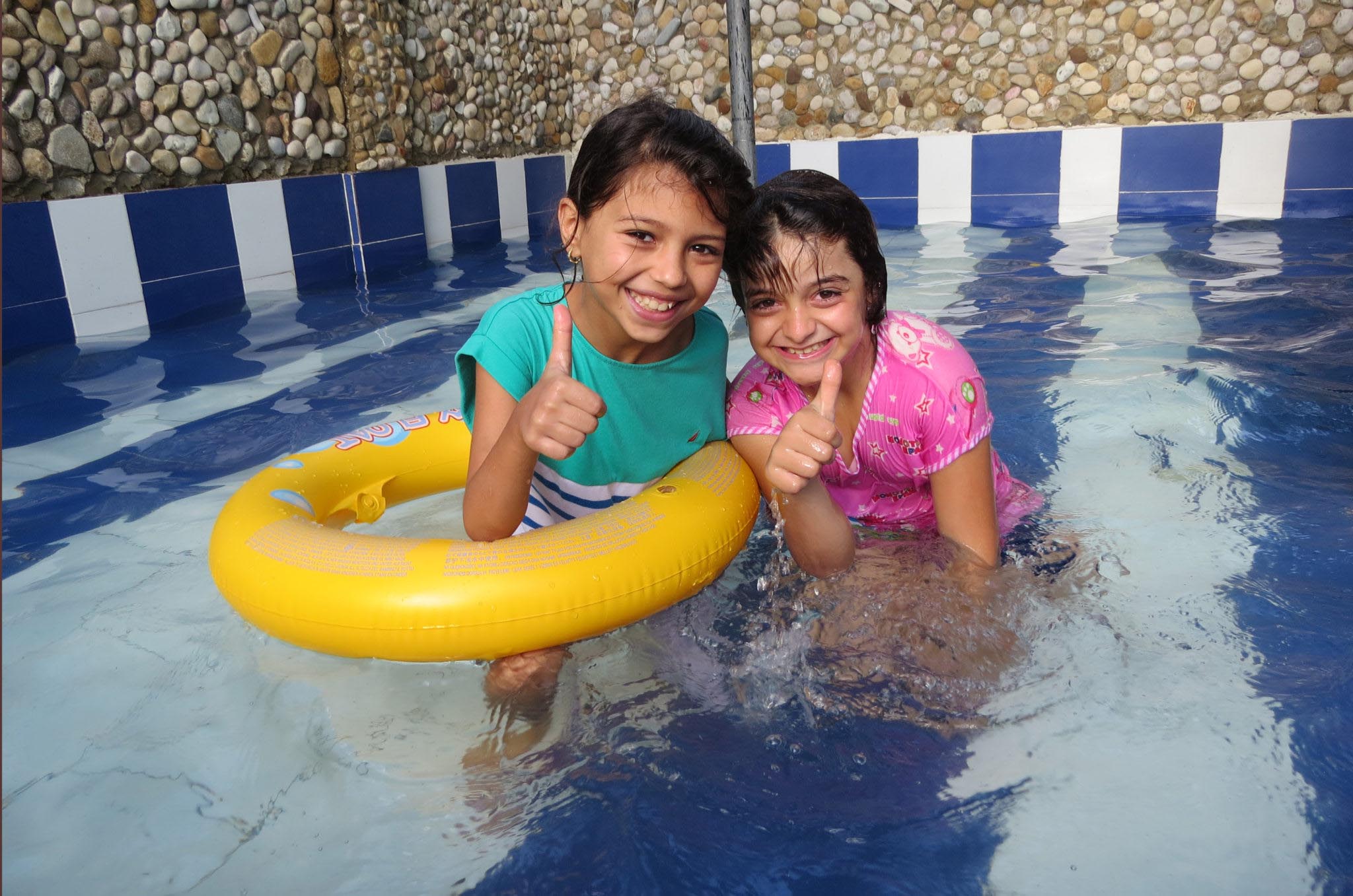

Sports Infrastructure
In the mid-2010a, Anera renovated a sports field and recreational facilities in the middle of Ein El Hilweh camp. The facilities create a place to temporarily escape difficult living conditions. They also offer an opportunity to teach teenagers key life skills, such as conflict mitigation and healthy lifestyle habits. The Ein El Hilweh community has ownership of their space through a Playfield Committee of elected officials, who are charged with creating rules and regulations regarding usage, maintenance and sustainability.
The existence of playing fields or safe play areas is vital for introducing and promoting good health and community spirit. In the late 2010s, in El Bass camp, Anera renovated a sports field and established/equipped the only safe, private recreational area for women.
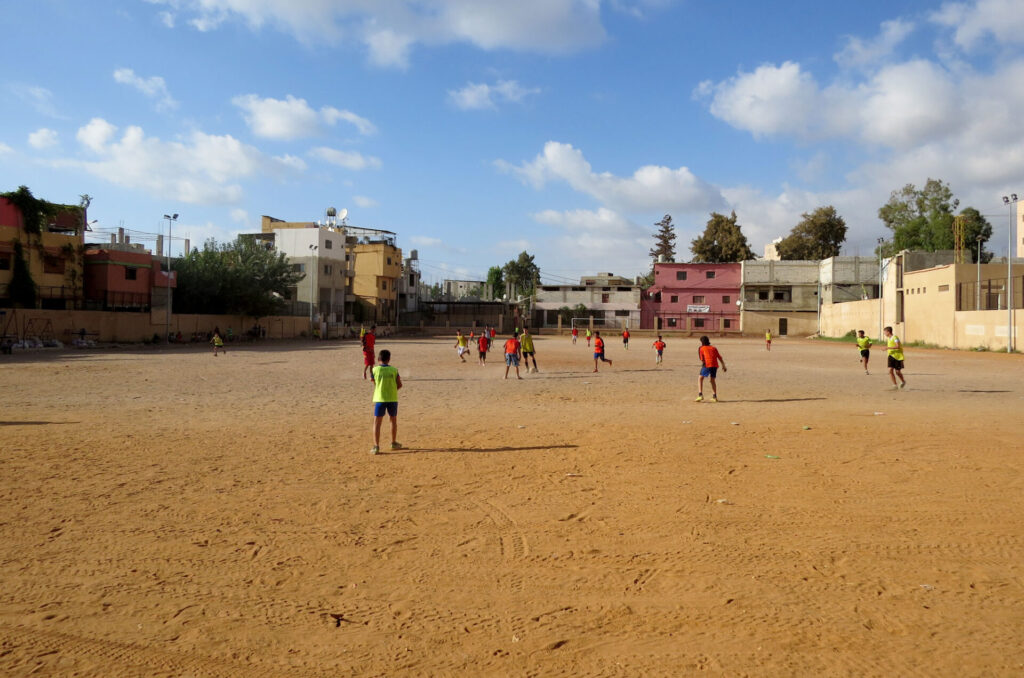

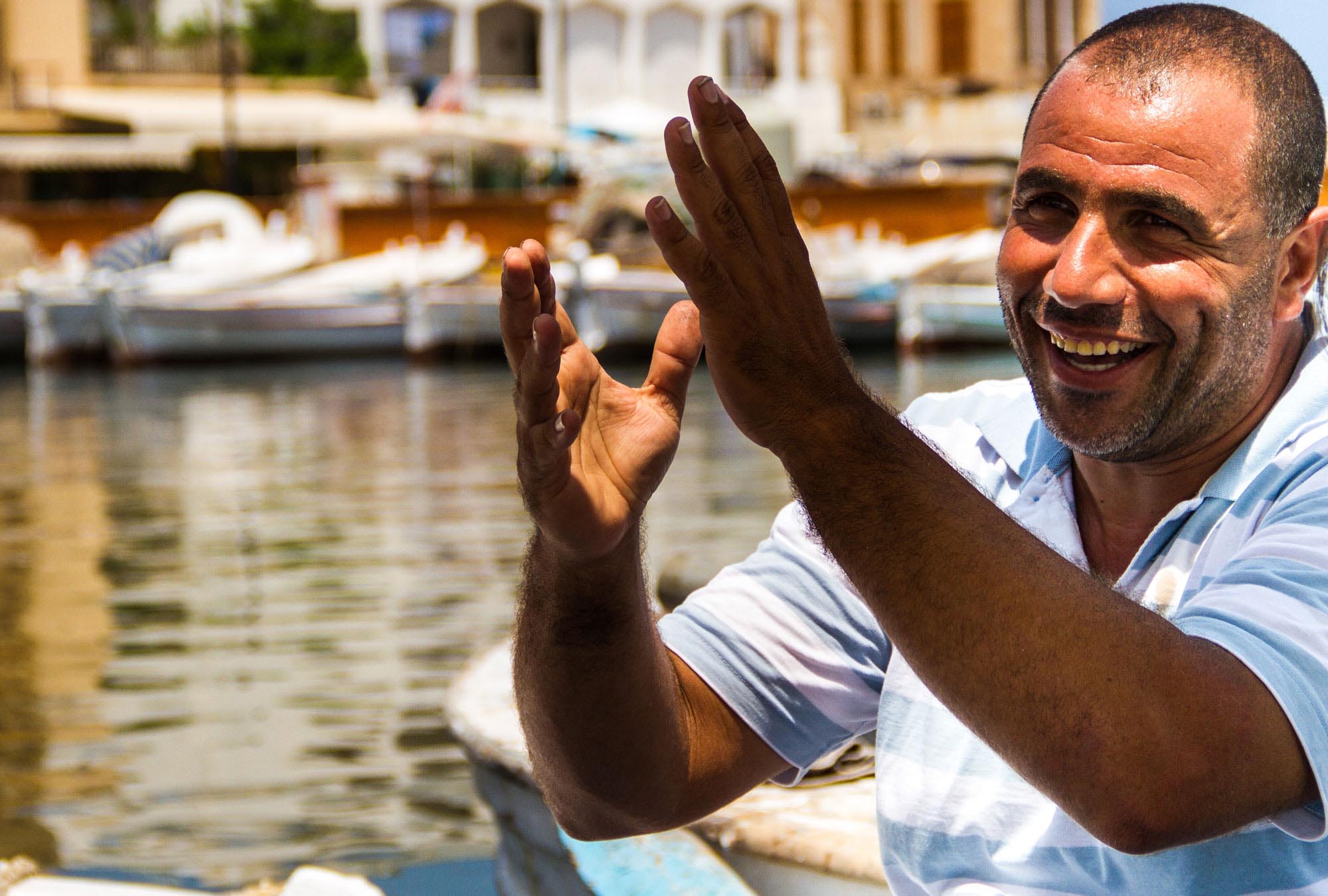

Livelihoods
Improving Tourism
Anera partnered with the Al Kafa'at Foundation to deliver the DHIAFEE program from 2005 to 2008. The goal was to increase economic opportunities in rural and other small communities by improving the quality of cottage inns and family guest houses outside of Beirut. Participants received training in hotel management and learned how to better market and promote their inns in order to attract more tourists. In South Lebanon, Anera worked with the Auberge Al-Fanar in Tyre, Auberge Wehbe and Rizk Plaza Motel in Jezzine, Dar El Saydeh in Machmouché, Hotel Yacoub in Saida, and Ghanem Guesthouse in Bkassine.
Grants for Small Businesses and Farmers
Anera implemented a recovery program in the wake of the 2006 conflict, providing grants of $500 to $2,000, totaling $2.2 million, to rehabilitate the economy of southern Lebanon. Anera helped 2,100 farmers, fishermen and entrepreneurs to recover from the war’s economic impact, sustain their business and continue to provide for their families and their community.
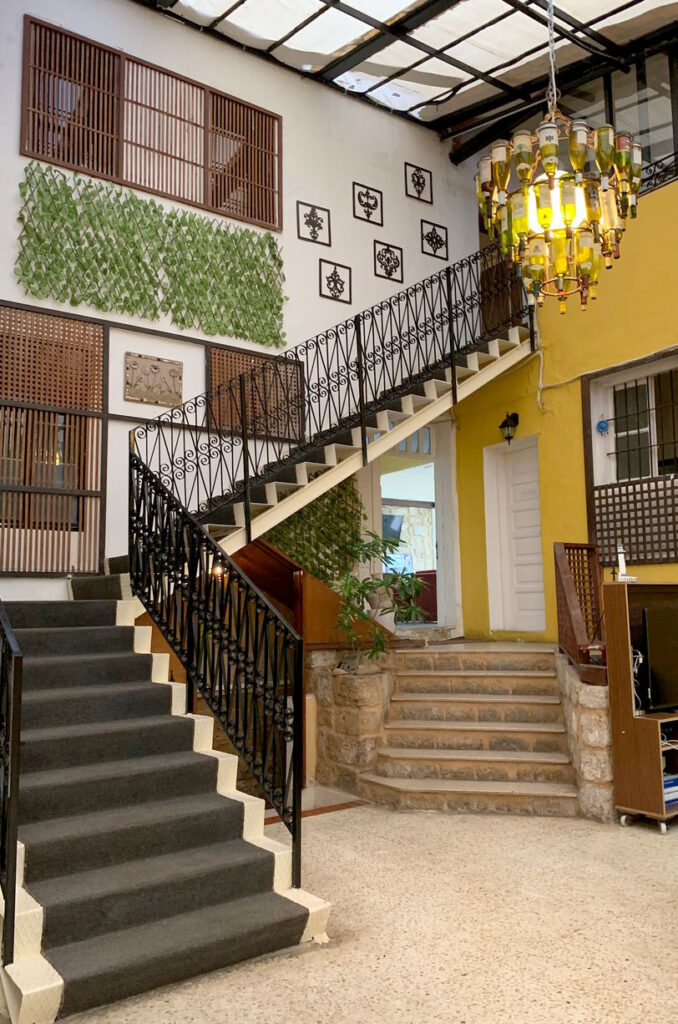

Humanitarian Relief
Civil War
In 1975, Anera supporters sent relief supplies to families displaced by air attacks in the Ein El Hilweh Palestinian camp in the South Governorate. Later in the year, during a ceasefire in the war, Anera sent $20,000 worth of antibiotics, medical, and surgical supplies for those wounded in the conflict. And, in March 1978, in response to the Israeli invasion and occupation of southern Lebanon, Anera’s donors responded generously (and many spontaneously) to the plight of the Lebanese and Palestinian refugees pouring into Beirut from the south.
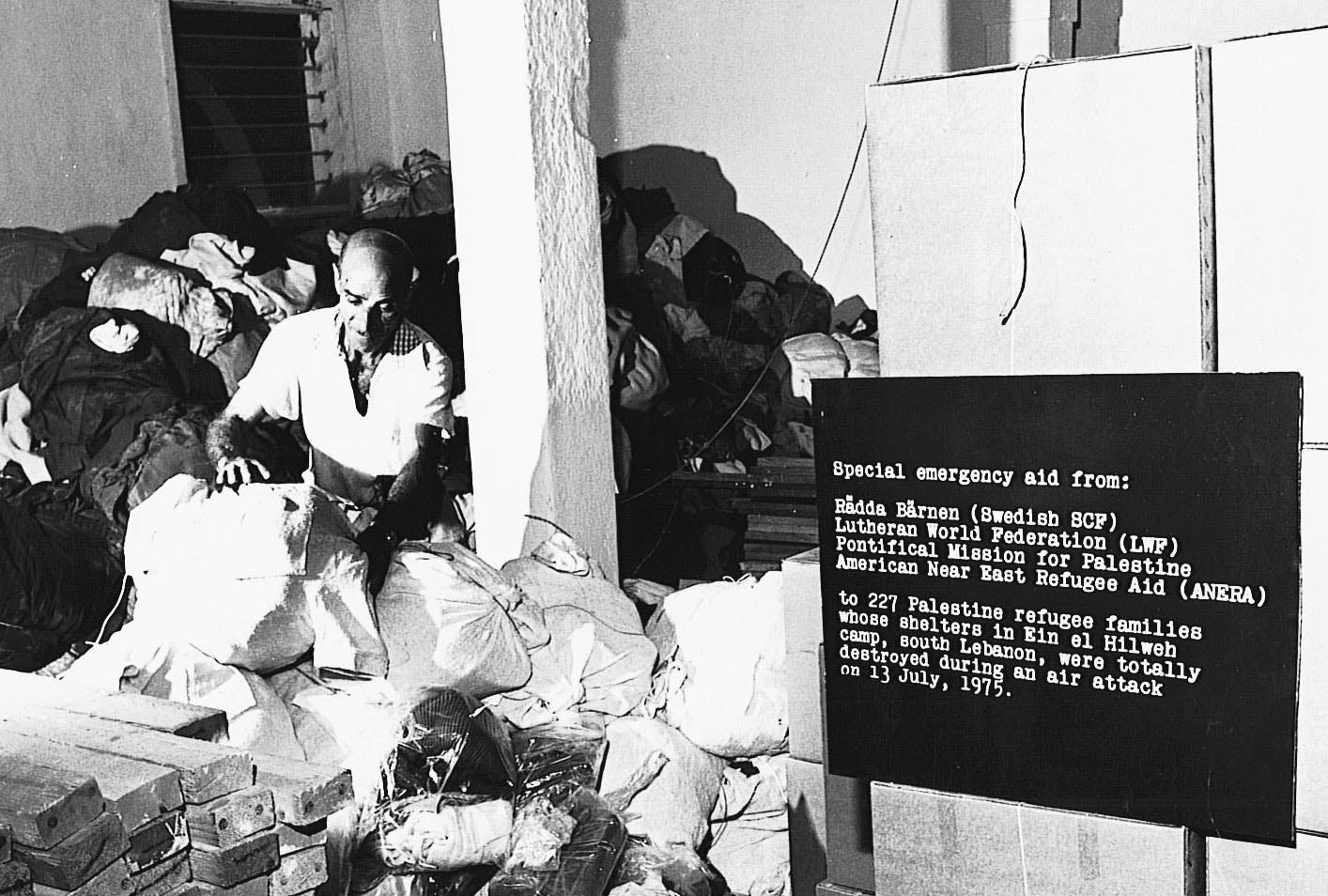

2006 War
During and after the 2006 war in southern Lebanon, Anera responded with distributions of humanitarian aid that included –
- 17,000+ hot meals served over the course of 16 days
- 30,500 infant hygiene kits distributed to mothers and children
- More than $5 million in medical supplies donated to clinics and hospitals.
Syrian Refugee Crisis
In 2013, as Palestinian refugees fled the violence and destruction of their homes in Syria with only the clothes they were wearing. Anera partnered with Beit Atfal Assummoud to deliver humanitarian assistance to those who sought shelter in Palestinian refugee camps in and around Tyre. The three-month-long program met 1,029 families' basic needs like bedding and clothing, food, and personal hygiene and baby kits. We also supported 263 host families.
More than half the Palestinian refugees from Syria sheltered in the refugee camps in the South Governorate, one of the poorest areas of Lebanon. In Ein El Hilweh, one woman Anera visited reported that she had 26 people sharing her small two-room apartment. She opened her home to other Palestinian refugees because she herself had once been forced to take shelter in Syria after her camp in Lebanon was destroyed.
Also, in 2013, Anera distributed 24,000 quilts to Palestinian camps housing refugees from Syria, including El Bass. Said Hasna, one quilt recipient in the camp: “I love this blanket. It reminds me of my grandmother who got one just like this from a foreign organization when she fled from Palestine to Syria.”
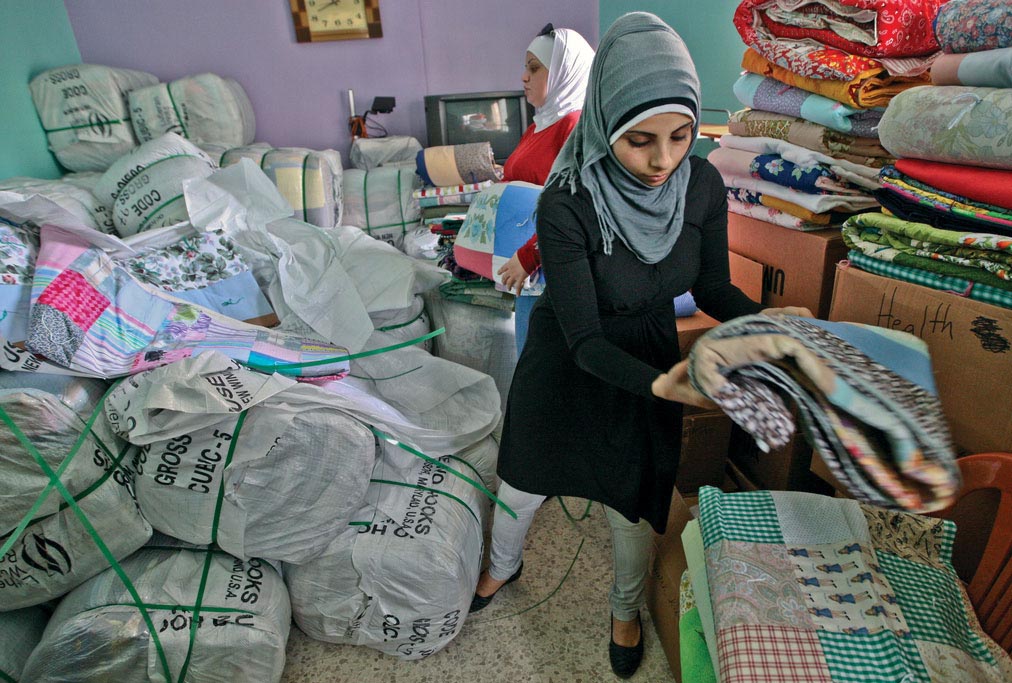

In the winter of 2013-2014, in partnership with the Najdeh Association, Anera supported Palestinian 2,300 refugee families from Syria and host families in Ein El Hilweh, Mieh Mieh and Wadi Zeineh with blankets, emergency lamps, family hygiene kits, winterized women’s dignity kits, children’s winter clothing kits, emergency flashlights, gas heaters and butane gas tanks. We included 450 host families in the distributions of humanitarian relief. Anera also provided health promotion activities and psychosocial support services free-of-charge.
2015 & 2017 Clashes in Ein El Hilweh
On August 24, 2015, armed clashes erupted between rival groups in the Palestinian refugee camp after the assassination of a political leader. The fighting quickly spread and forced residents to flee their houses to safety outside the camp. The clashes went on for seven days, burning down parts of the camp and forcing most facilities to close temporarily. Anera reopened its office in Ein El Hilweh on the second day of the fighting to coordinate distribution of 650 hygiene kits to a mosque hosting displaced families just outside the camp. “People really appreciated the kits because they fled the camp with nothing but some clothes,” said Ouyoun Shabayta, Anera senior field coordinator. “So, the supply of towels, soap, nail clippers, hair and toothbrushes and toothpaste served them well during their stay in the mosque.”
In 2017, more armed clashes in Ein Hilweh displaced some 1,000 families. Anera immediately mobilized contingency stocks of medicines, quilts and hygiene items. And we delivered medicines to Human Call Hospital inside the camp as well as Hamshary Hospital, just outside. The high numbers of injuries consumed both hospitals’ available stock and required timely replenishment of supplies.
Ramadan Food Distributions
Every year during Ramadan since 2018, Anera has put together large food parcels and distributed them in refugee camps and other vulnerable communities in the South Governorate. The food parcels include essential ingredients which Muslims use throughout the month, including rice and other grains, cooking oil, green lentils, white beans, hummus, dates and more.
"As a father, and especially during Ramadan, my first concern is to feed my family. So I sometimes end up working double shifts while fasting. When NGOs like Anera distribute food parcels, we feel relieved and at ease, because they are taking a huge load off of our shoulders. It means we can enjoy the holy month of Ramadan in dignity and comfort."
- Hani, a 42-year-old Palestinian resident of Ein El Hilweh camp
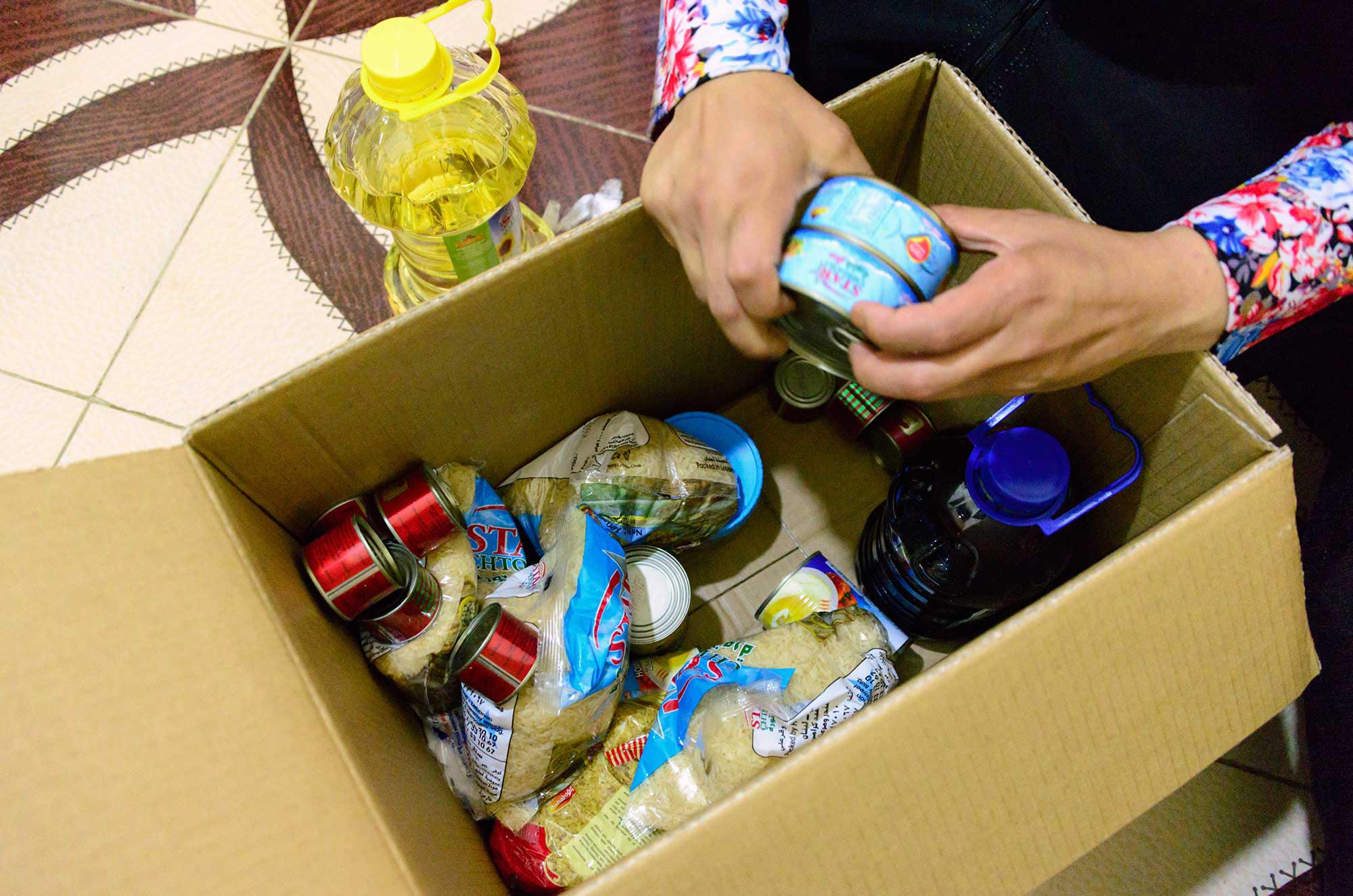

COVID-19
Anera responded in a multitude of ways to the pandemic crisis. Participants in our vocational training programs made face masks and cooked meals for vulnerable communities. Volunteers assembled and distributed kits that contained things like hygiene items and school supplies. They also distributed sanitation items to people who tested positive. Construction students created isolation centers, one of which was in Ein El Hilweh camp.
In 2020, Anera conducted many awareness sessions on the dangers of the virus and how to prevent its spread. As part of that work, Anera delivered infection-prevention kits to residents of Rashidieh, El Bass, Burj El Shemali, Ein El Hilweh and Aabbassiye. We worked hand-in-hand with our partners Al Shifa, Palestine Civil Defense, the Najdeh Association, UNWRA, and the Shahd Association to carry out these activities.
And we launched a nationwide campaign to raise awareness about the importance of getting vaccinated and to assist Palestinians in going to vaccination sites. Anera increased the number of vaccinated Palestinians in Lebanon by nearly 48%. The Palestinian camps in the South Governorate were integral to all of Anera’s COVID responses.
Anera led a campaign to register thousands of residents in the Palestinian refugee camps in Lebanon for vaccination against COVID-19. Palestinian refugees with COVID-19 had a morbidity rate three times higher than the average in Lebanon. These are a few of the people we reached.


